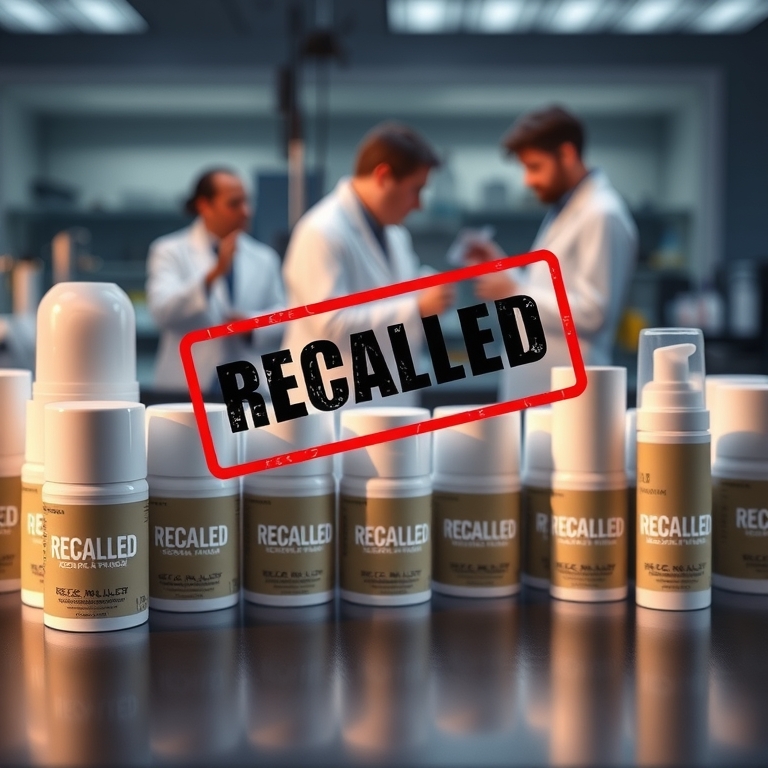In a move that has sent ripples through the personal care industry, the U.S. Food and Drug Administration (FDA) has issued a recall for several popular deodorant brands due to the presence of potentially harmful contaminants. This announcement has sparked a flurry of responses from companies, consumers, and stakeholders, highlighting the complexities and challenges of ensuring product safety in a highly competitive market.
The recall, which was announced late last week, stems from the discovery of benzene—a chemical compound classified as a human carcinogen—in multiple deodorant products. Benzene is known for its wide-ranging industrial applications but is not typically associated with personal care products. Its presence in deodorants raises significant health concerns, as prolonged exposure to benzene can lead to serious health issues, including bone marrow damage and increased risk of leukemia. The FDA’s decision underscores the agency’s commitment to consumer safety, even as it navigates the intricate landscape of regulatory oversight.
As the news of the recall broke, major brands found themselves in the spotlight, tasked with managing both the logistics of the recall and the potential fallout on consumer trust. For many companies, this represents an urgent need to reassess their supply chains and manufacturing processes to identify how such a contaminant could have infiltrated their products. Industry insiders speculate that the contamination may have occurred during the production process, possibly through the use of certain propellants or raw materials that did not meet safety standards.
This incident has also reignited discussions around the regulatory framework governing the cosmetics and personal care industries. Unlike pharmaceuticals, which undergo rigorous testing before hitting the market, personal care products are subject to less stringent pre-market scrutiny. This disparity has long been a point of contention among consumer advocacy groups, who argue that the current regulatory structure leaves too much room for error. The deodorant recall might serve as a catalyst for renewed calls to overhaul how these products are regulated, potentially leading to stricter guidelines and more rigorous testing procedures.
For consumers, the recall has prompted a re-evaluation of their daily routines, as they sift through their bathroom cabinets to identify and discard potentially harmful products. Social media platforms have become a hotbed of conversation, with users expressing a mix of frustration and concern. Many are turning to alternative deodorant options, including natural and organic brands, which have seen a surge in interest amidst the uncertainty. This shift in consumer preference could have lasting implications for the market, as brands that emphasize transparency and safety stand to gain a competitive edge.
In response to the recall, several companies have issued statements affirming their commitment to consumer safety and detailing the steps they are taking to address the issue. These actions include voluntary recalls, increased testing, and efforts to enhance supply chain transparency. Some brands have even gone a step further, engaging third-party laboratories to conduct thorough investigations, thereby demonstrating a proactive approach to resolving the situation. However, these measures, while necessary, may not fully assuage consumer concerns, as trust, once eroded, can be difficult to rebuild.
The financial impact of the recall is another aspect that cannot be overlooked. The personal care industry is a multi-billion-dollar sector, and any disruption can have significant economic repercussions. Companies affected by the recall may face substantial losses, not only from the immediate cost of recalling and replacing products but also from potential legal challenges and damage to brand reputation. Investors are closely monitoring the situation, assessing the long-term implications for the affected companies and the industry as a whole.
Moreover, the recall has brought to light the critical role of third-party testing and the importance of stringent quality control measures. As the global supply chain becomes increasingly complex, with raw materials sourced from various parts of the world, ensuring product safety requires robust systems and protocols. This incident serves as a stark reminder of the need for vigilance and the potential consequences of lapses in quality assurance.
In the wake of the FDA’s announcement, industry experts are calling for greater collaboration between regulatory bodies, manufacturers, and consumer advocacy groups. Such cooperation is essential to developing comprehensive safety standards that protect consumers while allowing for innovation and growth within the industry. The deodorant recall provides an opportunity to reflect on current practices and to explore ways to strengthen the regulatory framework to prevent similar incidents in the future.
Ultimately, the recall of multiple deodorant brands over harmful contaminant concerns is a sobering reminder of the responsibility that companies bear in safeguarding the well-being of their consumers. As the situation unfolds, it serves as an important case study in the ongoing dialogue about product safety, regulatory oversight, and consumer trust. The lessons learned from this incident will undoubtedly shape the future of the personal care industry, as stakeholders work collectively to ensure that consumer safety remains at the forefront of their priorities.

Leave a Reply